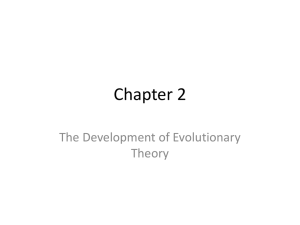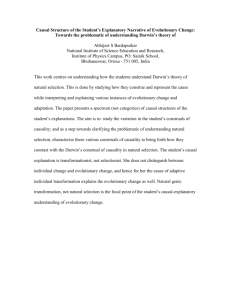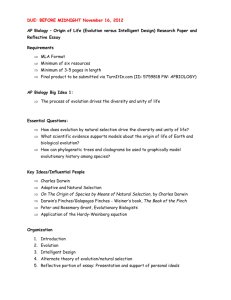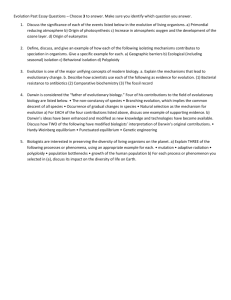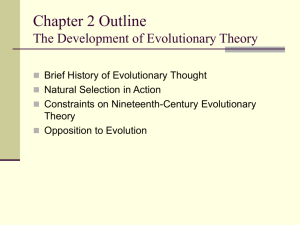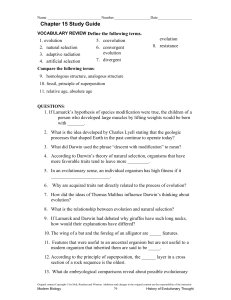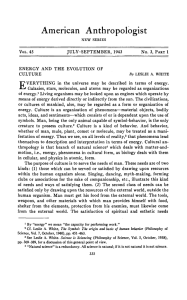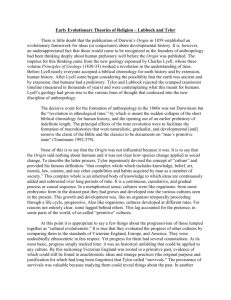Chapter 6
advertisement
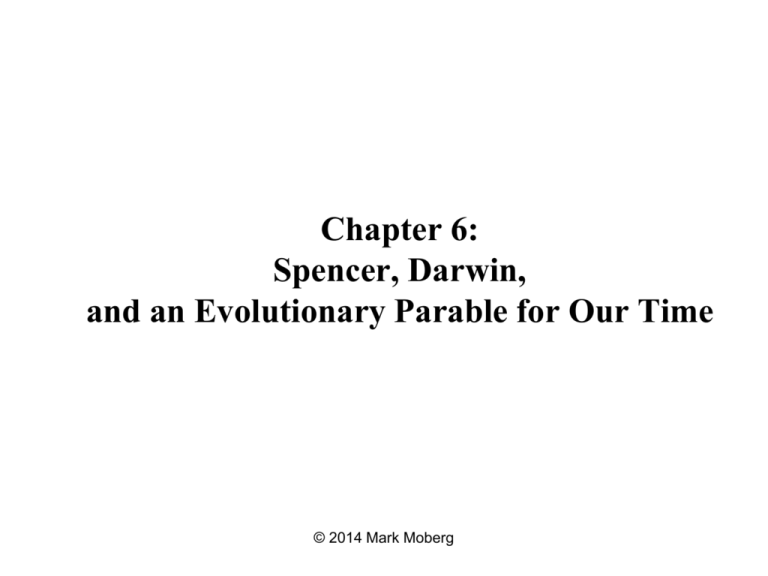
Chapter 6: Spencer, Darwin, and an Evolutionary Parable for Our Time © 2014 Mark Moberg • In the early 19th century, Herbert Spencer was among the few scholars who continued to advocate evolutionary theory. His views have become known as Social Darwinism: as the “natural” order of society, competition results in progress by eliminating society’s weakest members, leaving superior representatives of humanity to survive. Spencer opposed any intervention that violated this “natural law,” including public schools, public hospitals, and welfare. In his Origin of Species, Darwin extended Spencer’s assumptions into nature (a “struggle for existence” within “nature, red in tooth and claw”). • It is often mistakenly assumed that Edward B. Tylor and Lewis Henry Morgan were directly inspired by Darwin’s Origin. While Darwin viewed evolution as a branching tree, with each branch diverging into a separate species, Tylor and Morgan embrace the notion of orthogenesis, or evolution along a single line leading to greater social progress. Tylor and Morgan assumed that societies develop this way because of psychic unity: the minds of people at a given evolutionary stage operate in similar fashion, leading them to independently invent similar cultural practices. Finally, unlike Darwin, competition plays no role in evolutionary progress as understood by Tylor and Morgan. © 2014 Mark Moberg • Tylor and Morgan identified the stages of evolution as “savagery, barbarism, and civilization,” a scheme originating with Ferguson in the 18th century. Societies were positioned on this evolutionary line according to their level of social and technological progress; both schemes were ethnocentric in claiming that the US and England represented the pinnacle of civilization. • Tylor and Morgan differed in their applications of evolutionary theory. Tylor suggested that the first religious impulses arose from speculation about death and dreaming, leading people to conceive of the soul as a force that animates the body and departs from it upon death. He conceded some degree of rational thought to people at the lower stages of development, while Morgan dismissed all primitive religions as “grotesque and unintelligible”! Yet, Morgan’s discovery that all societies follow one of six kinship terminology systems still stands as an axiom within anthropology. • Both scholars were confounded by the side-by-side existence of traits belonging to different evolutionary stages (e.g. a farmer in modern Europe who nails a horseshoe above a door as a talisman for “good luck”). They explained such discrepancies as “survivals,” or cultural traits that persist from habit into a higher stage of evolutionary development. © 2014 Mark Moberg

